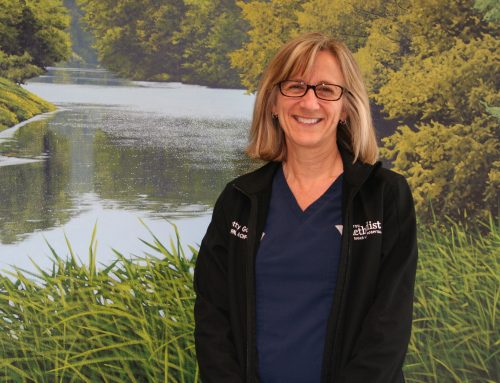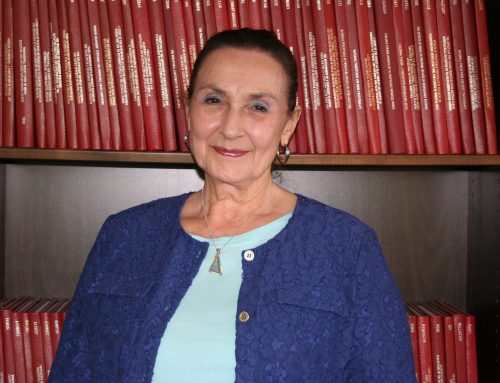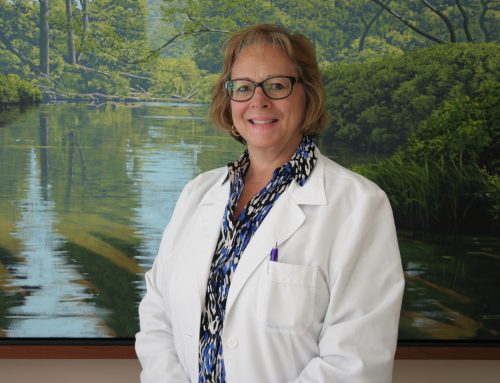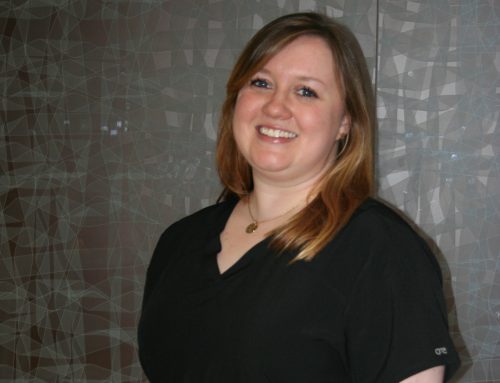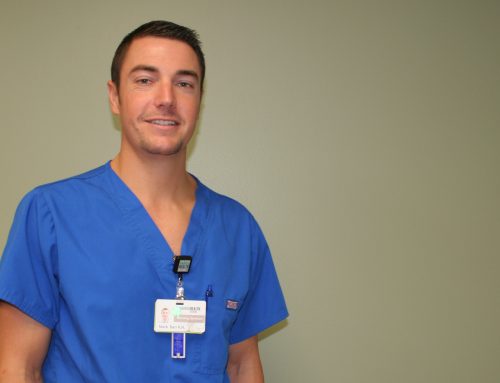2016 Gold Medalist – Clinical Education
Odette Comeau, DNP, RN, CCRN, The University of Texas Medical Branch at Galveston
Dr. Odette Comeau spent most of her school years living overseas after her father, a Canadian oilman, accepted an assignment to work for Exxon in the Middle East. “As a family we traveled extensively across Europe and North Africa,” says Dr. Comeau. “The experience exposed me to a wide variety of ethnicities, religions, and cultures, and my parents always taught me that just because somebody is different, neither of you is better than the other. I found learning about different cultures fascinating, and I often reflect back on how those experiences shaped my perspective as a nurse. Being trusted to provide care and help people recover at very vulnerable times of their lives is truly a privilege. In turn, we have an obligation to see them as the unique individuals they are in the context of their families, cultures, and social networks.”
A nurse for 32 years, Dr. Comeau began her career with an associates’ degree and after working for a few years, went back to school and completed her bachelor’s degree. She finished her master’s, and earlier this year she graduated from Walden University with her Doctor of Nursing Practice.
Dr. Comeau is known for her educational achievement, dedication to quality, excellent communication skills and a strong commitment to The University of Texas Medical Branch at Galveston, where she has worked for years. As a clinical nurse specialist, she focuses her energy on improving quality in adult critical care. She serves as the nursing chair of the Resuscitation Committee, which has received gold-level recognition from the American Heart Association for three consecutive years, and also guides UTMB’s two Rapid Response Teams. She has worked with colleagues as a clinical expert in the development of protocols to reduce central line-associated blood stream infections, catheter-associated urinary tract infections and ventilator-associated events. She champions nursing initiatives to improve visitation for families in the critical care setting and is working to develop a pet therapy program in UTMB’s ICUs.
Dr. Comeau serves as the clinical expert when evidenced-based information and policy changes are needed to improve care at UTMB, which as a Magnet® hospital values collaborative, interdisciplinary approaches to changes. In the words of her nominator Josette Armendariz-Batiste, DNP, RN, CCRN, “Odette is articulate, calm, clear, and concise in transferring information. As John Quincy Adams wrote, ‘If your actions inspire others to dream more, learn more, do more and become more, you are a leader.’ Odette inspires others. She has a kindness and willingness to share with others. She mentors nurses in new endeavors, using all her skills to ensure their success. She leads people and groups to develop improvement processes that benefit patients and staff. Once all this is achieved, Odette steps back into the crowd to offer her applause as if she never lent a helping hand. She possesses a unique skill to lead without standing in front. Her greatest skill is ensuring others that she is always at your side, supporting you through the process so that the next time you’ll feel confident in your abilities on your own. This is the mark of a true leader.”
Dr. Comeau’s participation in the All-ICU Shared Leadership Group and the Adult ICU interdisciplinary meeting has resulted in numerous changes benefiting patients, staff, and families. Among them was her dissertation project on the implementation of delirium screening for UTMB’s adult critical care patients, which noted a need for better recognition, intervention, and documentation of ICU delirium. After researching the topic, she listened to the concerns of physicians and nurses, proposed several options for trialing delirium screening, was an active member in the changes needed in the documentation system and assisted in the educational rollout to physicians and nurses. Through her efforts, UTMB staff members are better able to identify delirium in the ICU early and take measures to improve outcomes.
“I was very excited to have that work done and published,” she says. “It’s the result of many years of hard work and sleepless nights. I’m so proud of our adult critical care nurses who are now screening for delirium, a very adverse outcome that is preventable.”
Over the years, Dr. Comeau has been seen providing “roving in-services” to staff, taking education to the bedside clinician. She was instrumental in pioneering UTMB’s critical care website, which provides resource documents, links, and videos she produced for use as a reference by ICU nurses. She has also assisted in the development of and remains an instructor in UTMB’s Nursing Internship Program, an adjunct to the nursing residency program that helps fill knowledge gaps new nurses may have in specific patient interventions, equipment, and specialty training.
Dr. Comeau and others worked on the development and implementation of an adult critical care intra-facility checklist that improved outcomes when patients travel for tests and treatments. She is a board member of Blocker Burn Champions, an organization dedicated to the support of burn survivors. She leads the peer review panel in charge of evaluating nurses for advancement. When UTMB began planning to move 300 patients to its newly built hospital, she created more than 50 worst-case scenarios to prepare staff for unexpected occurrences they might face during the move. She received UTMB’s Nursing Leadership Award.
On Saturdays she finds time to volunteer at the Luke Society Clinic, a free clinic for underserved and uninsured individuals. She has had numerous abstracts accepted for presentation at national conferences, including the 2016 Nursing Improving Care for Healthsystem Elders (NICHE) Conference. She is the author of numerous journal publications.
“Nursing is such a versatile career. We need nurses in hospitals, in homes, in rehabilitation – even cruise ships need nurses so there’s always a choice,” Dr. Comeau says. “As nurses we have so much to learn from each other. To be given an award for something I love to do is truly amazing.
“I have a lot to be thankful for as a nurse,” she adds. “My colleagues are an inspiration. They teach me and challenge me to engage in new experiences. They allow me to grow professionally. And most importantly they let me have fun. My patients in adult critical care have taught me that miracles can and do happen. They’ve also taught me that life is very fragile and can change in a matter of seconds. Nursing has its highs and lows but to be able to make a difference in someone’s life, that’s truly a gift.”
